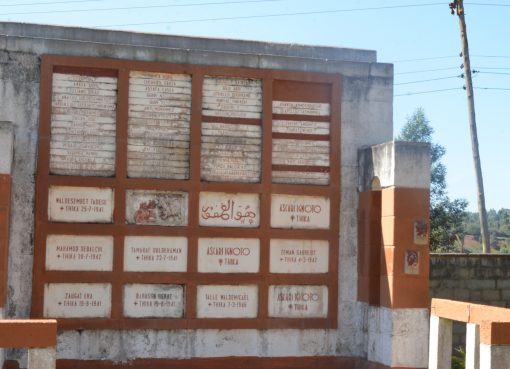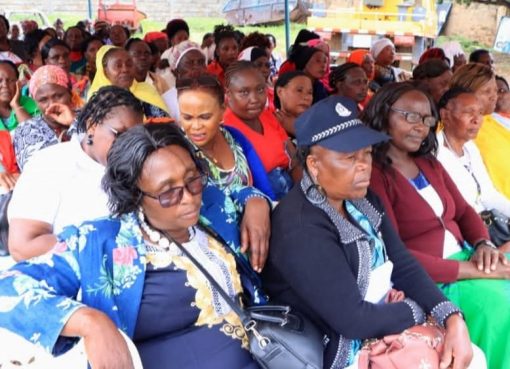On his death on Monday evening, prominent Nakuru businessman Said Abdallah Azubedi left behind an estate valued at over shs2 billion.
Nothing unusual here except that the 82-year-old shunned opulence and lived like a pauper in the sprawling Bondeni Slums.
He was content with a life so simple that he hardly stood out in crowds, often wearing regular outfits and open shoes.
County Governor Lee Kinyanjui aptly captured the widely known entrepreneur’s eccentric lifestyle when he eulogized him as ‘successful but quiet and ambitious but innocuous’.
The businessman popularly known as MzeeAzubedi owned several high rise residential properties in the posh Milimani estate.
Nevertheless he lived in a mud house in Bondeni, often mingling with his neighbours.
He astonished family, friends, and society in general by insisting on leading a lifestyle akin to a poverty-stricken person even as his portfolio of wealth grew in leaps and bounds over the years.
“Mr. Azubedi was a “humble and honest man who took great pride in his sweat,” stated the governor
Outpouring tributes from the residents, business community, politicians and religious leaders point to a man who despite his vast wealth was humble, philanthropic and content.
The trader with Yemeni roots arrived in Kenya in the late 1960s and set up shop in Bondeni slums.
He was a pioneer wholesaler and distributor in the area, serving small scale traders in estates including Kaloleni, Kivumbini, Langalanga, Shauri Yako and Paul Machanga.
“Mzee Azubedi died after a long illness at the Nairobi Hospital. May his soul rest in peace,” said Mr. Abdulkarim Omar, a longtime friend and neighbour of the businessman in Bondeni since the 1970s.
Though he owned a modern and well fitted business complex within the Central Business District, MzeeAzubedi operated from his humble downtown Tabaruk Cafe patronized by matatu crew and traders from the nearby Nakuru main market.
Though influential in his own right, MzeeAzubedi studiously avoided dabbling in politics particularly within Bondeni Slums and Nakuru Town East Constituency where the Muslim community holds a significant sway.
On the flipside the publicity shy businessman had a share of unsolicited limelight as he engaged in highly publicized litigations both civil and criminal in fighting off elements whom he said were bent on unscrupulously slicing off parts of his vast business empire.
“His routine was to wake up at dawn and be driven to this café where he would mingle freely with touts, street boys, traders and hawkers.
The café was only furnished with very basic necessities and did not have luxuries such as music or a television set,” said his long time driver only identified as Ali.
Despite owning a fleet of long distance haulers and trucks Azubedi retained a sentimental attachment to his 1971 Peugeot 504 Station Wagon which he dutifully serviced and maintained.
His close associates further revealed that the wealthy businessman bought and wore secondhand clothes.
In his stable were a chain of prime plots in Nakuru’s central business district, along Kenyatta Avenue and the main bus terminus.
MzeeAzubedi’s property inventory also encompassed residential and commercial premises in downtown Langalanga estate along Kanu Street.
Though not so generous to himself, he was reputedly generous and has been hailed for his contributions during Islamic events. He was known as a great benefactor during Iftars and Islamic holidays.
However, he was equally not so generous on giving interviews and having his pictures taken.
The trader will be buried today, Tuesday at the Bondeni Muslim Cemetery next to his business premises.
“Funeral prayers will be held at the Bondeni mosque during the 4pm prayers,” said Muslim leader FadhiiMsuri.
The tycoon is survived by his wife, several children and grandchildren.
By Anne Mwale




